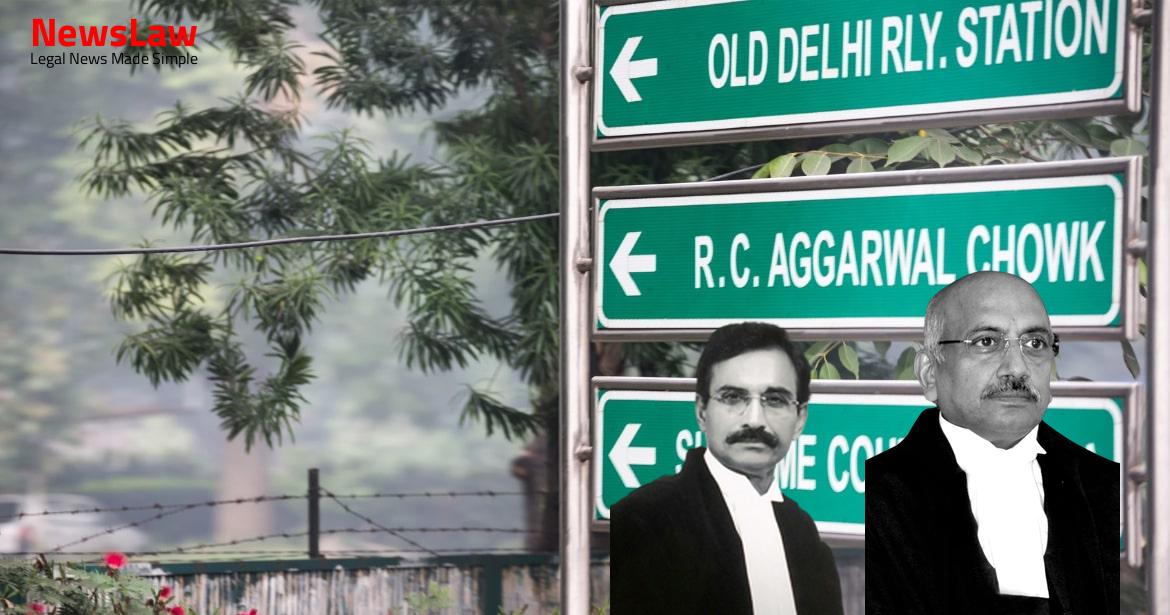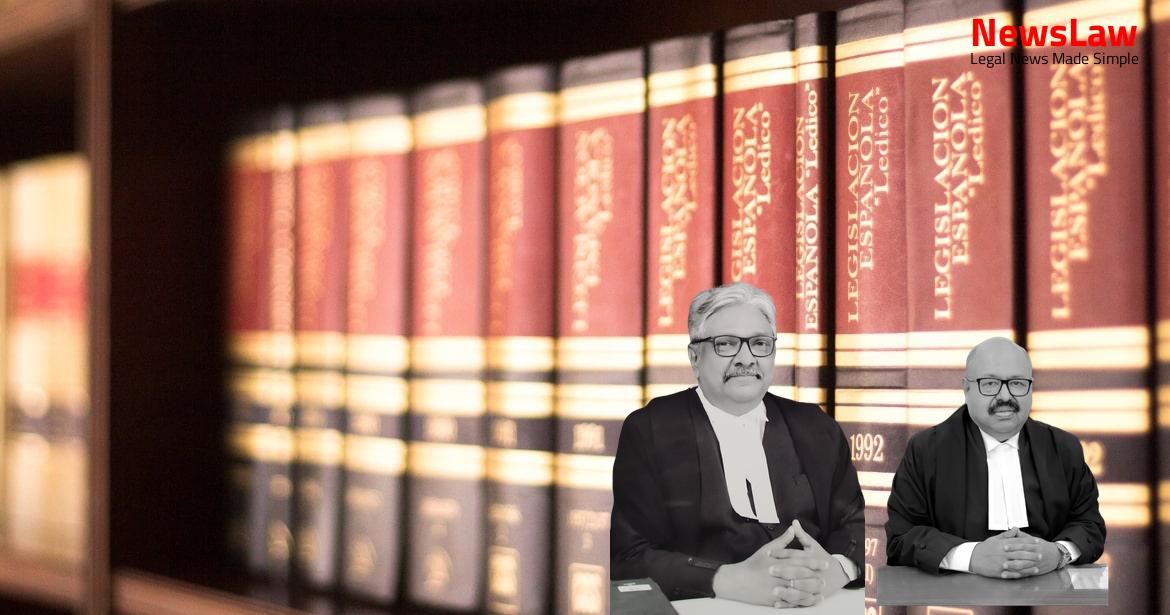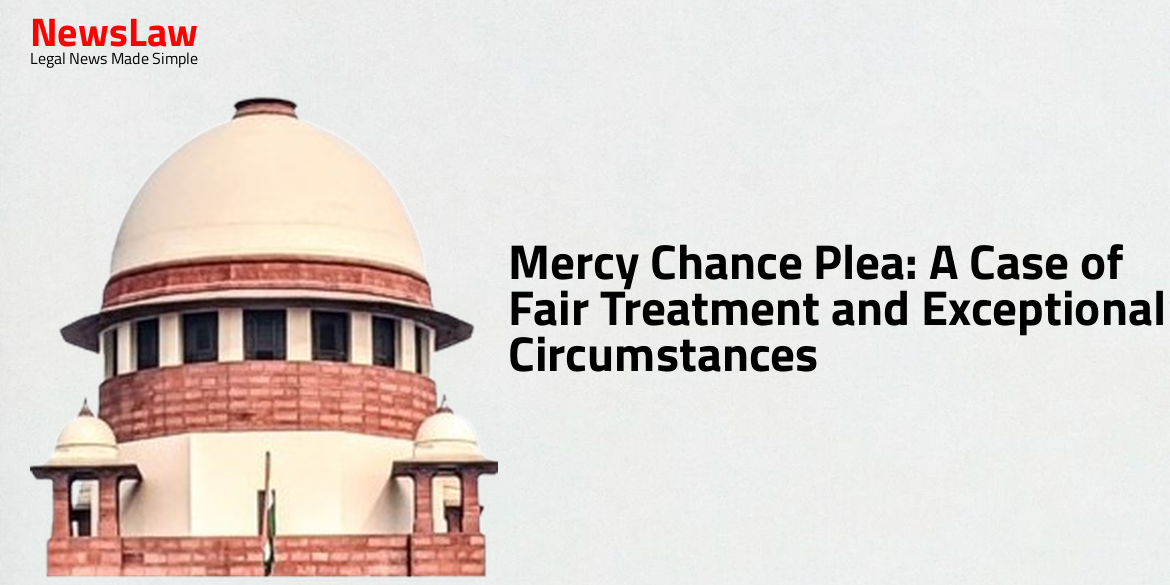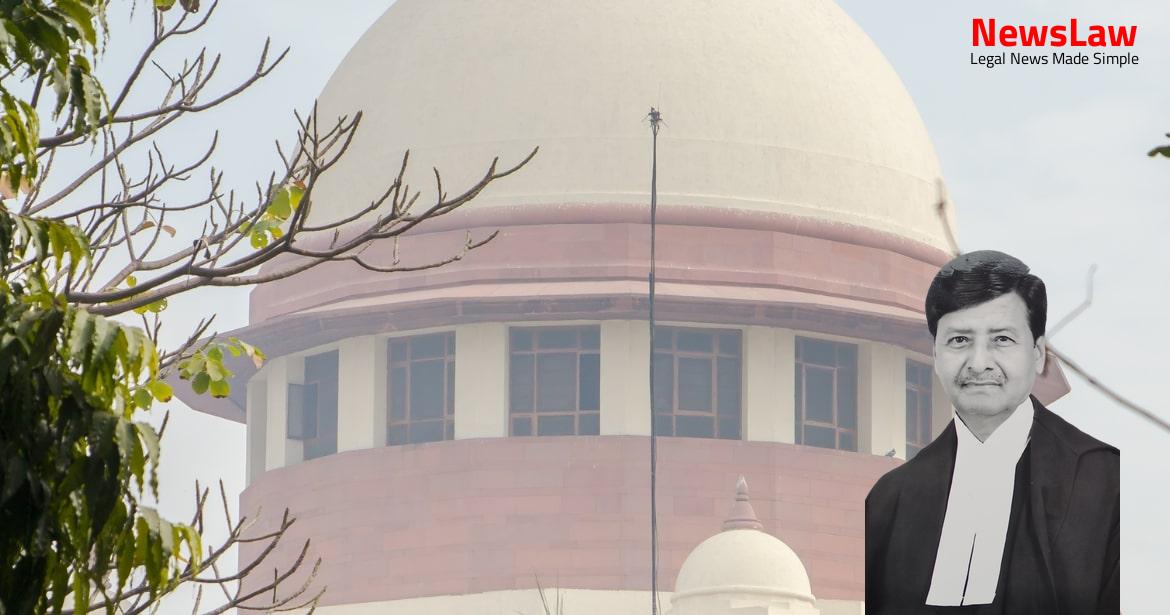In the recent legal case under the Air Force Act, 1950, the Supreme Court of India reviewed the dismissal and punishment imposed on the respondent. The case involved allegations of misappropriation of fuel from the Air Force Station in Kanpur. The judgment addresses the procedural irregularities and lack of evidence against the respondent, leading to the dismissal of the appeal. This landmark decision sets a precedent in military discipline cases. The Court’s ruling emphasizes the importance of due process and substantial evidence in such matters.
Facts
- The Tribunal found that it is not mandatory for authorities to report offences to civil police for FIR registration.
- The Tribunal noted that only the AOC-in-C is competent to convene the District Court Martial.
- The charges against the individual were not proven beyond reasonable doubt upon re-appreciation of evidence.
- The District Court Martial imposed punishment of dismissal from service, reduction of rank, and three months of rigorous imprisonment.
- The Tribunal set aside the District Court Martial’s decision, leading to the Union of India filing this appeal.
- The Respondent was enrolled in the Indian Air Force in the trade of Equipment Assistant on 18.01.1988.
- A detailed report indicated that the Respondent and Corporal G.S. Mani were involved in taking out Petrol, Oil & Lubricants belonging to Air Force Station, Kanpur.
- The Respondent was not given an opportunity in terms of Rule 156 of the Rules during the Court of Inquiry proceedings.
- An Additional Court of Inquiry was ordered to further investigate certain other aspects not covered by the initial Court of Inquiry.
- The Tribunal found that the proceedings of the Court of Inquiry were vitiated due to violations of specific sub-rules.
- The Additional Court of Inquiry found that the Respondent had prepared gate passes in advance on some occasions.
- Charges were dropped due to insufficient evidence to sustain some of the initial charges.
- The Court of Inquiry found that a significant quantity of fuel was misappropriated by the Respondent and another individual.
- Manipulation was done by falsifying gate passes to take out kerosene, diesel, and petrol.
- The Tribunal held that the loss caused due to theft required reporting to civil police as per regulations.
Also Read: DHFL Moratorium: Depositor Rights & RBI Intervention
Arguments
- Para 804(b) of the Regulations is not mandatory according to Mr. R. Balasubramanian, learned Senior Counsel for the Union of India.
- The Air Force Act, 1950 and Air Force Regulations, 1964 govern the conduct and discipline of the Air Force.
- Detailed procedure for conducting a trial by a Court Martial is prescribed under the Air Force Act.
- No requirement for the registration of an FIR is mandatory under the Rules of the Air Force Act, 1950.
- Section 5 of the Cr. PC is not applicable to personnel governed under the Air Force Act.
- Refers to the judgment in Ajmer Singh & Ors. v. Union of India & Ors. where it was mentioned that reporting a theft to civil police is permissible if the situation warrants.
Also Read: State of Karnataka v. [Respondent]
Analysis
- Section 5 of the Code of Criminal Procedure states that it does not affect any special or local law in force.
- The reporting of theft to civil police as per Regulations is optional for individuals subject to the Act.
- The relevant Acts for Army, Navy, and Air Force are self-contained comprehensive Codes specifying various offences and procedures.
- The Air Force Act is a special law conferring jurisdiction and powers on Court Martial.
- The Code of Criminal Procedure is not applicable to matters covered by the Air Force Act.
- Rule 43(4) states that loss supposed to be due to theft should be reported to civil police when circumstances warrant.
- Court inquiries must afford full opportunity to individuals subject to the Act affecting their character or service reputation.
- The proceedings of a court of inquiry or any confession made shall not be admissible in evidence against a person subject to Air Force Law.
- Confessions or statements made at a court of inquiry can only be used in trial for falsely giving evidence before that court.
- The convening order for the General Court Martial had the approval of the competent authority and was not unauthorized.
- The charge sheet, summary of evidence, and convening order were sent to the senior officer of the Court-Martial and the Judge Advocate as per procedure.
- The appointment of Group Captain A.K. Gurtu as the Senior Personnel Staff Officer for the AOC-in-C Maintenance Command was undisputed.
- Testimonies of PW6, PW7, and PW8 regarding the loading and unloading of barrels and issuance of POL were examined.
- Contradictions in the statements of PW6 raised doubts about his reliability as a witness.
- Charges 5 and 6 of criminal breach of trust were not established beyond reasonable doubt based on the reconsideration of evidence.
- Witness testimonies from PW1, PW2, and PW3 did not provide substantial evidence linking the accused to the charges.
- The accused declined to cross-examine witnesses or produce documentary evidence, limiting his defense.
- The convening order, signed by Group Captain A.K. Gurtu, was found to be in accordance with Rule 43(4) and valid.
- The District Court Martial found the accused guilty of Charges 1, 2, 5, and 6, as per the judgment.
- The contention regarding the competency of the convening officer for the Court Martial was addressed and ruled in accordance with Air Force regulations.
- No concrete evidence was found connecting the accused to the offense of illegal transportation of POL.
- The examination of evidence did not support the mandatory nature of para 804(b) of the Regulations of the Air Force Act.
- Even though there is disagreement with the Tribunal on other issues, the lack of evidence against the Respondent led to upholding the judgment.
- The decision to uphold the judgment was based on the absence of any evidence implicating the Respondent in the case.
- The lack of evidence against the Respondent was a key factor in the Tribunal’s decision.
Also Read: Legal Analysis of Entrance Exam Regulations in AYUSH Courses
Decision
- Civil Appeal No.7440 of 2018 filed by the Respondent is dismissed.
- The Tribunal’s directions for the Appellant to pay only 50% of the arrears of salary are upheld.
- After considering the submissions of the learned Senior Counsel, the court decided not to interfere with the Tribunal’s order.
- The Appeal stands dismissed.
Case Title: UNION OF INDIA Vs. CHANDRA BHUSHAN YADAV (2020 INSC 54)
Case Number: C.A. No.-018830 / 2017



